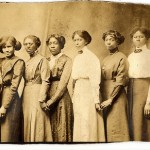I recently had the good fortune to hear Ian Jukes share his thoughts on education's struggle to keep pace with "Exponential Times." I found his presentation particularly interesting because a book I recently read identified exponential growth as the most important concept that humans do not understand. The author asserts that humans simply are not wired to grasp the inherent power of a numeric value simply doubling or tripling at regular intervals. According to the math, this principle is exerting its force on everything from the federal debt to overpopulation. Of course, something so significant deserves more than a blog post to fully explain and digest. However, an organization being unable to quickly and fluidly adapt in a changing environment is an indicator of future failure, and few would label educational institutions as "fleet footed." So, what stalls our ability to surf the wave instead of drowning in the flood of change? Our way of thinking.
In his presentation, Jukes described the need to face our "TTWWADI's," which is an acronym for, "That's The Way We've Always Done It!" Many of you would recognize this as an example of paradigm recognition, but with a far better acronym (The acronym for paradigm recognition is simply, "PR," and that's been taken). I like using "TTWADI." It sounds more interesting, slightly risque, and, if someone Google's it about an hour after I publish, it will likely be a top hit. I'll do anything for readership.
Since hearing Jukes, I continue to ask myself, "What are education's TTWWADI's?" Some are obvious, such as summer vacations, desks in rows, and employing education bloggers who are convinced they are funny and intelligent. However, what about those second level paradigms? You know, the ones that we rarely discuss because we are too busy arguing over whether students need three months to help in the fields and factories. And, because it is the blogger's primary job to provoke discussion, I decided to assert five unconventional thoughts for your consideration. Some might actually be valid ideas. Some, likely, are not. All are the half-baked musings of this blogger that I hope get you thinking.
TTWWADI: The Concept of "A Class"
There is a great deal of conversation about holding teachers accountable using student data. As a principal, doing so may impede my ability to get teachers to flexible group, share responsibilities, and work collaboratively. If we're going to be forced to go down that path, what about having elementary teachers be measured on the success of their grade level, instead? Would this create internal and positive pressure within teams to find solutions for every child? Or, would it also open another, deeper discussion about "weak links," resulting in more innovative and valuable evaluation systems? These, of course, would need to be executed with fidelity, or the principal would risk facing the wrath of grade level members who are being statistically "brought down" by those who should be evaluated out of the organization. What a conversation this would be!
TTWWADI: The Role of the Principal
Speaking of principals, what really is the role of the building administrator? We talk about how critical it is for principals to be instructional leaders, however, most of us spend a majority of our day managing, directing traffic, and lecturing students about the peril in their future if they don't stop pulling pigtails. Many high school principals are essentially mayors of small towns. I seem to be quite the instructional leader, especially when the children aren't actually in the building. And, since a vast majority of a teacher's contract time parallels student time, well, you get the picture. We're back to the harvest and factory discussion.
TTWWADI: Student Grouping
Why do we group by age for the entire day when we measure by ability to meet a standard? This sometimes leaves teachers forced to differentiate beyond what is sometimes even possible for one person.
TTWWADI: Textbook Adoption
How wise is it to spend millions of dollars on adopted textbooks in a world where your newspaper is obsolete before it hits your driveway? Actually, I'd bet most of you reading this wouldn't even spend a couple of quarters on a newspaper. Point made, I do believe.
TTWWADI: Powering Down
Lastly, why do many students typically have to turn off the most powerful technology in the building when they come to school? Having students put away their iCal's to write in their homework calendars makes as much sense as having them take off their modern athletic shoes in order to put on Converse All-Stars for track competitions. Try it sometime; your feet will hurt. And, you will lose.
It's really hard, but I'm stopping at five. However, there are surely hundreds or thousands more. Identifying a TTWWADI is the easy part. They often exist because we were unable to think of better alternatives. But, let's start with simply calling them out. What TTWWADI's can you think of? Be daring. Think from the ground up. What questions for a system swept up in exponential times need to be addressed? What prevents us from being able to adapt, quickly. What is the wildest idea you've ever conjured? No, not that one. Stick with education; it's far safer than trying to make a real light saber.
Release the hounds! Let's hunt TTWWADI's! Be careful, they're extremely ferocious, especially when cornered by new ideas. They can claw at your career, bite your professional relationships, and spray pure stink on your reputation. On second thought, maybe the light saber idea is safer. But, I for one care about education and am prepared to go hunting. Care to come along?








